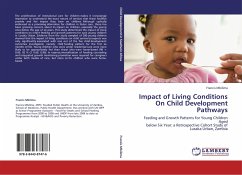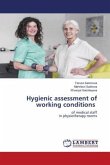The proliferation of institutional care for children makes it increasingly imperative to understand the exact nature of services that these facilities provide and the impact they have on children. Although cyclically embraced as a promising alternative for children in foster care, there has been growing concern about its impact on children, especially the young ones below the age of six years. This study determined the impact of living conditions on infant feeding and growth patterns for such young children in Lusaka Urban. Evidence from the study sampled of 280 young children showed that the impact of living conditions on child survival prospects was only significantly associated with one out of the five child development outcomes investigated, namely: child feeding pattern for the first six months of life. Young children who were under residential care were more likely to be appropriately fed than those who were home-based (RR = 0.80, 95 % CI 0.66, 0.96). In essence,intensification of feeding counseling and integrated growth monitoring promotion were required for caregivers under both modes of care, but more so for children who were home-based.
Bitte wählen Sie Ihr Anliegen aus.
Rechnungen
Retourenschein anfordern
Bestellstatus
Storno








